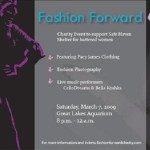“It’s Not Only Academic” — Conferences in “Social Inquiry” and in Writing
 In the last two weeks, I have been to two conferences, one at UW-Superior featuring entirely student presenters, and one at Lake Superior College. In both cases, it was clear: the university is learning to respond to the community, and the faculty and students are committed to making the community a better place.
In the last two weeks, I have been to two conferences, one at UW-Superior featuring entirely student presenters, and one at Lake Superior College. In both cases, it was clear: the university is learning to respond to the community, and the faculty and students are committed to making the community a better place.
At UWS, I attended the Social Inquiry Conference, an event sharing student research with the UWS community (and public). Planned by the Department of Social Inquiry, under the coordination of Dr. Deborah Augsburger and Dr. Sarah LaChance Adams. It was an exhausting but engaging day.
Some highlights for me:
In “It’s a Witch, May We Burn her? Puritan Doctrine & Secular Community in the 17th Century,” Elizabeth Hunter reminded me of my own whitewashed history of witch trials. I had always thought of the Salem trials as a problem of distorted politics of gender and Christianity in a strange and deadly confluence. Elizabeth reminded me: there was another influence that I had not remembered, the “pagan” “others” of the first nations communities that surrounded the early settlers of New England.
Dara Filmore presented her work building a website about the history of the Superior region in the WWI (Great War) period. She’s excavating some amazing archives, archives that would make Tony Dierckins jealous.
Xaun Chen shared what is for me an exemplary first step toward critical social inquiry — a willingness to work hard at introspection. In the end, her paper on “Objectifying the Nature of Death: A Defense of Lucretius’ Symmetry Argument” is meditative, and in being meditative, it opens up space for rethinking my personal and my social life. It asked me to consider what, really, is valuable about the life I lead. Well-done.
The model of engaged research motivated “Towards a Virtue Ethics of Child Labor” (Scott Wallace), “Gendered Roles in the Workplace: What Can Be Done?” (Stacey Rootes), and “Is There Utility in Inequity? A Utilitarian Analysis of Global Poverty” (Kevin Knaus). While I have some deep questions about some of the issues explored (“Can a child make a moral choice to engage in child labor, whether in a factory or in a family farm?”), the whole of the panel encouraged me to see labor as a vibrant space for social and philosophical reflection.
There were other highlights — I heard the phrase “beauty-industrial complex” for the first time; I heard Joel Sipress reflect on the continuing value of seeing the personal as political. But mostly, I was impressed by the students, so clearly wanting their intellectual work resonate both as scholars and as citizens.
. . . . . . . . . . .
I also attended the Lake Superior Summit on Writing, more than 75 teachers of writing from within 150 miles of Duluth coming together to talk about the teaching of writing.
Most vibrant to me was the session chaired by Seth Langreck, on Civic Engagement and the writing classroom. The room, filled with teachers of high school writing, of the university and community college composition courses, showed me that educators in this region really want to connect our work to their students as members of the community and to the community in a larger sense.
I’d like to thank the Planning Committee: CSS: Pat Hagen, Tom Zelman, Heather Bastian; LSC: Amy Jo Swing, Sheila Packa, Kelli Hallsten, Steve Dalager, Gretchen Flaherty, Katie Berg; UMD: Liz Wright, Avesa Rockwell, Susan Perala Dewey, Patrick Eidsmo; UWS: Deborah Schlacks, Jamie White-Farnham
. . . . . . . . . . . . . . . . .
When I started teaching, my colleague Rex said that the problem with the university was that it saw the community as a collection of internship sites.
This week makes me think that that might be changing.
Recommended Links:
Leave a Comment
Only registered members can post a comment , Login / Register Here












2 Comments
annefluke
about 11 years agoannklefstad
about 11 years ago